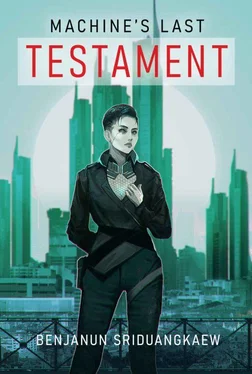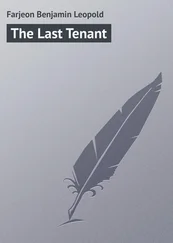“No. That is true. My apologies—I’m being unfair.”
“The world is unfair,” Suzhen says, and she could finish the thought—that the world has been unfair to Ovuha specifically, as it is unfair to those descended from exiles who forsook Samsara—but she refrains. Too mollifying, too apologetic, when she does not owe Ovuha that. “Do you feel up to job interviews or shall we call it a day? I’ve already registered your certifications. You’re technically equivalent to a citizen who’s received ten years of basic education.” An underestimate, but there is an upper limit for how far a candidate can be certified. Nothing tertiary, even when Ovuha’s skills are well beyond that.
“It’s remarkable that the possibility of me getting work is legal.” The potentiate loosens her scarf and reties it into a complicated, rosette knot. “Truly Anatta’s magnanimity is boundless. I’m up to it. I don’t wish to be difficult.”
“I should tell you that if your neighbors—or that family you’re giving language lessons to—offer you help finding work, it’s best to turn them down politely. Even if they insist it’s better money than anything you can officially get.” A market for refugee flesh; there is always one, always thriving.
“No one’s offered, but I will keep that in mind.”
Their first stop is at an ornithology lab, where bird cultivars are made to order. They wait in the showroom where sample birds sing in faultless harmony, preening, their plumage in every shade. There are openings for janitorial and menial work—the facility’s run by someone who prefers human hands over drones—and at first Ovuha is received warmly enough, despite her status. The interviewer sours at one point and Suzhen, again monitoring at a distance, thinks she knows why. Ovuha’s fineness, the absence of abjection. It is not that Ovuha is impolite, rather the opposite, but the interviewer expected a charity case, an object on which pity can be visited upon. Yet Ovuha resists both being an object and being pitiable. She should have left her potentiate in terrible clothes, Suzhen thinks, grimed and bare of cosmetics.
Next they visit a teahouse. Kitchen work, away from the view of diners. Here it goes even more poorly, the interviewer asking outright what Ovuha is doing here. “I’m in need of work,” Ovuha says mildly; it earns her a request to leave.
Ovuha looks over her shoulder as they exit. “Perhaps I should’ve shown up in rags.”
“It’s only been two places.” Suzhen consults her list and requests navigation from her guidance. “Be patient.”
The third and fourth don’t proceed much better. A citizen is evaluated and given a choice of assignments: none of this reliance on human caprices, the surface compassion that can turn into petty cruelty at the flip of a coin. Making the process the same for potentiates would have been far more efficient, more humane. Suzhen once asked her mother why. Mother folded her hands. Samsara is intimately familiar with human nature. When life is otherwise perfectly manicured, precisely arranged by machine, you lose your agency. But if you cannot control your fate, still you can seek to control another’s. In this way you may retain an illusion of power, of being master of your own life, and so continue to be complacent. And contented subjects are easy to govern.
What would happen, Suzhen wonders, when there are no more warlords and no more war-torn seekers of asylum; when the colonies have been disbanded or annexed under Samsara rule, humanity set on the path to paradise. All then would be citizens, all would be—in name—equal.
Before she sees Ovuha off, she says, “We’ll get you employed before the month is out. No matter how tempting, don’t take on work that sounds too good to be true.”
“Such as being research subjects?”
“Someone did offer to help you then.”
Ovuha half-chuckles. “I’m not a child, officer. When one’s skills are not suitable, and few options are open, what remains but to sell the flesh? Organs, pharmaceutical and cybernetic testing, other things. It is not that any of them is lesser work. They fulfill a need. But I do have particular ideas on the autonomy of my body, even if I can’t afford to. You needn’t fear.”
The things one can afford and the things one can’t. When she is home, Suzhen double-checks the altar to her mother, to make sure the offerings she left have not faded into motes of dust.
Being in a theater reminds Suzhen that she has not been in one for a long time or consumed any entertainment that requires in-person presence. It is small, exclusive, the kind of establishment that invites people like Taheen rather than people who work in bureaucracies. Taheen has come with her but has lingered at the reception and so Suzhen sits, alone, among the empty boxes that revolve slowly above the stage. Her friend encouraged her to mingle, but theirs is not company she enjoys. Even if Suzhen had tested into such fields, she doubts she’d belong with career artists, who universally have a particular temperament. The easy assumption that what they do matter the most: more significant, more brimful of meaning than clerical or administrative or menial work. The subsuming of identity and personality into passion.
Taheen arrives in their shared loge, wreathed in a cloud of cocktails and perfume. “I finally figured out how this new painter got a spot at Kufreabasi’s gallery. Apparently zie slept with Kufreabasi while they were at this artists’ retreat. So tawdry.”
Suzhen has no idea who the painter or Kufreabasi is, or why Taheen should take an interest, given that they don’t paint and neither person could possibly be competition. “You slept with plenty of people.”
“Well sure, everyone does that, but you’re supposed to be subtler about it when you’re starting out. Besides, zie is an obvious sycophant and zir work’s far too pandering. Painting about being a painter, art about being an artist, that sort of thing. I can’t bear the type. Here, I got you a glass.”
She takes the drink—more tea and fruit than alcohol, the way she likes it—and watches the light around them dim, the other boxes fill. “You still haven’t told me what the play is about.” She could have looked it up, but that would have made Taheen sulk, and in any case she prefers to hear it from them.
“Political allegory. No plot—literally, not just me being catty.” Taheen empties their glass in a single gulp. “We aren’t here for the quality of the script, you understand, just for the quality of acting. Vipada’s the lead.”
The auditorium deepens from white to the turquoise of sunlit sea, gold-green. Stimulated water laps and pushes against the glass of their loge. For a time—two solid minutes—nothing else happens save this gentle rocking motion and a few piano notes, muted and distant. The loges tilt backward, directing the audience’s gazes to the ceiling.
From overhead a body is falling, facedown, limbs spread. The descent is slow, resisted by the currents and the white funeral shawl that it wears. A woman with immense dark eyes, hair behind her like a comet, her expression glazed with the blankness of the dreaming or the dead. The ambience darkens, shedding the gold of daylight. “I am dead,” a voice says, “and I’m not awake.”
A second voice: “Perhaps you have never been.”
The body—the woman—stirs, shaking her head, righting herself in the water. She touches the shroud she wears, the soft material, and in distaste tears it off. Underneath she is not bare but armored, torso clad in red steel, limbs sheathed in shadow iron. “I am the Wayupuk, bird of war. Even in death I know no defeat.” Freed of the shroud, she sinks faster, feet first. She reaches into the deepening currents and draws from them a gun, the weapon phenomenally made, the black-pearl luster evident even in the dim.
Читать дальше












